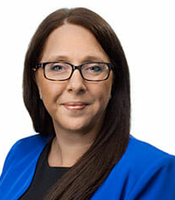 As the aging population continues to expand, the need for high-quality senior care facilities becomes increasingly important. Beyond meeting the basic needs of older adults, it is crucial that these facilities make enriching and meaningful activities available to their residents to heighten their physical, mental, and emotional well-being.
As the aging population continues to expand, the need for high-quality senior care facilities becomes increasingly important. Beyond meeting the basic needs of older adults, it is crucial that these facilities make enriching and meaningful activities available to their residents to heighten their physical, mental, and emotional well-being.
As it stands, some senior care facilities have already resumed their operations in full in the wake of the pandemic. Some have reopened their doors for visitations and prioritized group activities, but some centers have been more hesitant. While this reluctance is understandable, it's important that seniors have access to social interactions that help to enhance their quality of life. This article addresses why engaging older residents in meaningful activities helps to create positive patient outcomes and helps seniors enjoy a vibrant and fulfilling life.
Understanding the Importance of Meaningful Activities for Seniors
As we age, the hobbies and activities we engage in can have a profound impact on our physical and mental well-being. Physical and social activities have a direct correlation with a senior's overall health. Engaging older adults in regular physical activities helps prevent and manage various age-related conditions. Promoting strength, balance, and flexibility helps reduce the risk of falls and other injuries that could have a dire impact on their care.
Similarly, cognitive and emotional stimulation is vital for maintaining cognitive function and preventing cognitive decline in aging individuals. By providing intellectually engaging activities such as puzzles, reading clubs, and creative workshops, senior care facilities can enhance seniors' cognitive abilities, promoting mental sharpness and a sense of accomplishment. These activities also address the social and emotional needs of seniors as well. Participating in social activities fosters a sense of belonging and combats feelings of loneliness and isolation, which are common among older adults. Group outings, game nights, and communal meals cultivate and support a vibrant community for their residents.
To incorporate enriching activities effectively, senior care facilities must adopt a person-centered approach. Each resident has unique preferences, interests, and capabilities, and tailoring activities to meet their individual needs is crucial. Facilities should conduct assessments and involve residents, their families, and care teams in the planning process so activities can be personalized, ensuring they are both meaningful and enjoyable for each individual.
Consider implementing technology into these activities for further enrichment. Digital tools allow for virtual engagement and expand the possibilities for activities, particularly in situations where in-person interactions may be limited. Virtual reality experiences, video chats with loved ones, online educational courses, and interactive games can provide mental stimulation, reduce feelings of loneliness, and maintain social connections.
Promote Intergenerational Engagement Within Activities
Promoting intergenerational engagement within senior care facilities is a powerful way to enrich the lives of both older adults while also simultaneously impacting younger generations. Creating opportunities for interaction and collaboration between these two age groups can foster a vibrant and mutually beneficial environment.
Intergenerational activities break down generational barriers and create a sense of shared experiences and understanding. Through these interactions, older adults gain a renewed sense of purpose as they have the chance to share their wisdom and life experiences with younger participants. Similarly, younger individuals benefit from the wisdom and guidance of older adults, gaining valuable insights that can shape their own lives.
These intergenerational engagements create a vibrant learning environment where both older adults and younger participants can exchange knowledge and skills. Seniors can pass on their expertise in various areas, such as arts and crafts, cooking, or storytelling, allowing younger generations to learn from their experiences. In return, younger participants can share their technological skills and knowledge, helping seniors navigate the digital world and stay connected with loved ones.
Senior care facilities can establish partnerships with local schools, universities, community organizations, and volunteer groups. Collaborative projects and programs, such as mentorship initiatives, art workshops, or intergenerational reading clubs, can be developed to encourage meaningful interactions between seniors and younger generations. These activities can take place on-site within the care facility or off-site, allowing for a diverse range of experiences and interactions.
Overcoming Challenges and Ensuring Success
Implementing enriching activities in senior care facilities comes with its own set of challenges. However, by addressing these obstacles and adopting strategies for success, senior care facilities can ensure the effective integration of meaningful activities into their residents' daily routines.
One significant challenge is providing proper training and development for staff members. Caregivers and staff should receive comprehensive education on the importance of meaningful activities and strategies for planning and facilitating engaging experiences. When staff are equipped with the necessary knowledge and skills, they can confidently create and lead activities that cater to the diverse needs and interests of residents. Regular training sessions, workshops, and ongoing professional development opportunities should be implemented to keep staff up-to-date with the latest research and best practices in elderly enrichment.
Continuous assessment and improvement are vital to the success of meaningful activities in senior care facilities. Regular evaluation of the effectiveness and impact of activities allows facilities to gather feedback from residents, families, and staff. This feedback helps identify areas for improvement and make necessary adjustments to ensure that activities remain meaningful, engaging, and aligned with the evolving needs and preferences of the senior population.
 Additionally, senior care facilities must allocate dedicated spaces and resources for activities, ensuring that residents have easy access to the materials and equipment needed. They must also consider any mobility or cognitive limitations of residents when planning activities, ensuring that they are inclusive and accessible to all individuals. Creative scheduling and flexible programming can accommodate varying preferences and abilities, maximizing resident participation and enjoyment.
Additionally, senior care facilities must allocate dedicated spaces and resources for activities, ensuring that residents have easy access to the materials and equipment needed. They must also consider any mobility or cognitive limitations of residents when planning activities, ensuring that they are inclusive and accessible to all individuals. Creative scheduling and flexible programming can accommodate varying preferences and abilities, maximizing resident participation and enjoyment.
Incorporating enriching and meaningful activities into the daily routines of senior care facilities is not only a responsibility but also an opportunity to enhance the lives of older adults. As healthcare executives, let us embrace this responsibility, invest in the necessary resources, and work collaboratively to create a future where elderly enrichment becomes an integral part of senior care facilities.
Melissa Powell is the COO of Genesis Healthcare, a network of 250 facilities across 22 states.